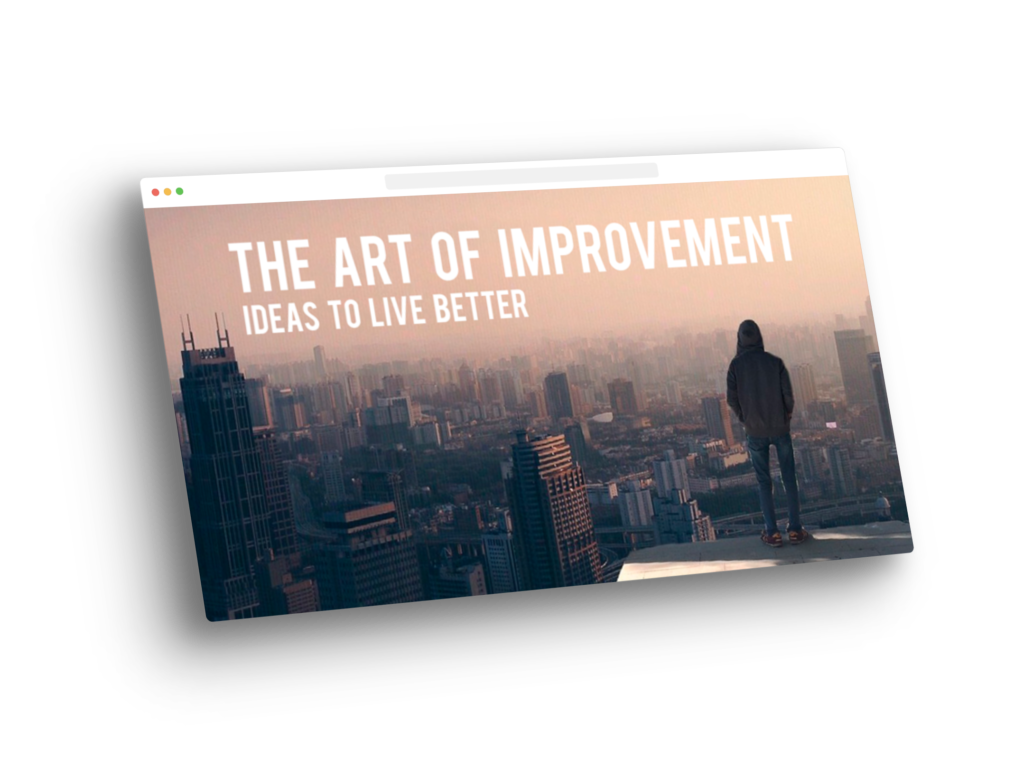One of the world’s wealthiest billionaires, Warren Buffet, is quoted as having said,
“The difference between successful people and really successful people is that really successful people say no to almost everything.”
This concept may seem confusing to some, wondering how anyone could be really successful if they say no to most things. Wouldn’t you think that by taking advantage of every invitation and opportunity, you could have a full and profitable portfolio of investments and accomplishments?
You might think so, but by discovering how really successful people look at opportunities, you might find that by being more selective in where you put your time and energy, you’ll produce better results!
Let’s take a look at why saying no to some things, can be a big YES to bigger things.
Why Say No?
The first thing you might want to ask yourself is, “Why say no to almost every opportunity that comes my way?” It might seem counterintuitive to say no when trying to make a success of something. But saying yes to too many things can leave you feeling stressed and fragmented.
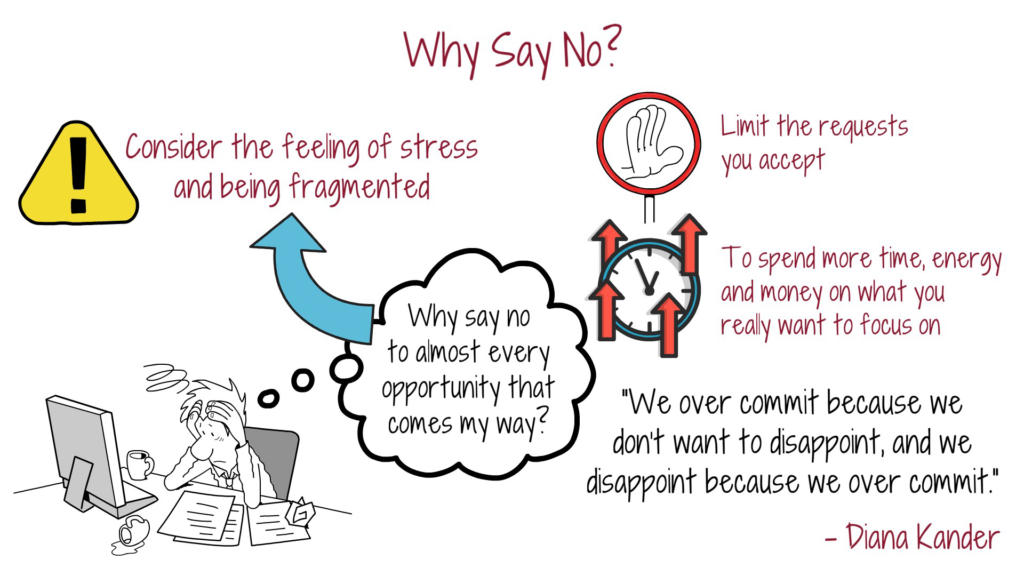
Entrepreneur Diana Kander said,
“We over commit because we don’t want to disappoint, and we disappoint because we over commit.”
By limiting the number of requests you accept and commit to, you could spend more time, energy, and money on the things that you really want to focus on.
By saying no to things that don’t align with your highest goals, and prioritizing projects that are important to you, you may find yourself more successful.
What Really Matters
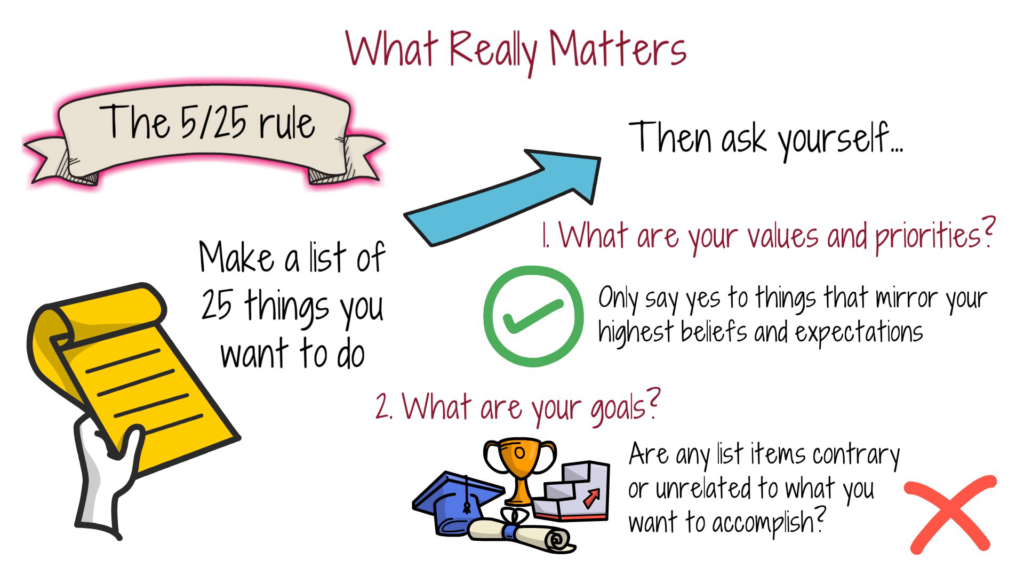
Then, how do you decide when to say no and when to say yes? Warren Buffet had another thought on choosing the best opportunities to help you reach your goals. He called it the 5/25 rule. First, make a list of 25 things you want to do. Then think about each item on your list and ask yourself a few questions.
- What are your values and priorities? The things you say yes to need to mirror your highest beliefs and expectations for yourself. If there are any items on your list that don’t meet that criteria, you can cross them off first thing.
- What are your goals? Be specific when outlining your goals for success. As you look over the list of 25 possible opportunities, ask yourself if any of these are contrary or unrelated to what you want to accomplish. If they won’t bring you closer to your goal, cross them off.
- Which things on the list might improve your life in some way? Would it be a healthy choice? Will it bring more wealth? Will it enable you to spend enough time with your loved ones? If it’s not something that will enhance your life in some way, cross it off.
- Will it make a difference? Will it have a positive effect that improves life for you or the world? Does it matter? If not, you may want to cross that off too.
Once you have looked over your list and crossed out all of the ones that are clearly not a good fit for you, then look at what’s left and circle your top five. Those five choices are the ones to focus on. By saying no to the others, you can now concentrate on putting all your effort into making the ones that are most important to you the most successful.
Entrepreneur Steve Jobs stated,
“If you are working on something you really care about, you don’t have to be pushed. The vision pulls you.”
By working through your list and finding your top five, you can feel pulled by the enthusiasm for the things you care most about.
What are You Saying “No” to?
When you say no to something, you are giving yourself permission to say yes to other things. You can’t do your best, if you are overbooked and overwhelmed. If you already have too much on your plate, say no. If you feel the request isn’t a good match for your interests or skill set, say no. If it’s a conflict of interest, say no. And if it seems too good to be true, definitely say no.
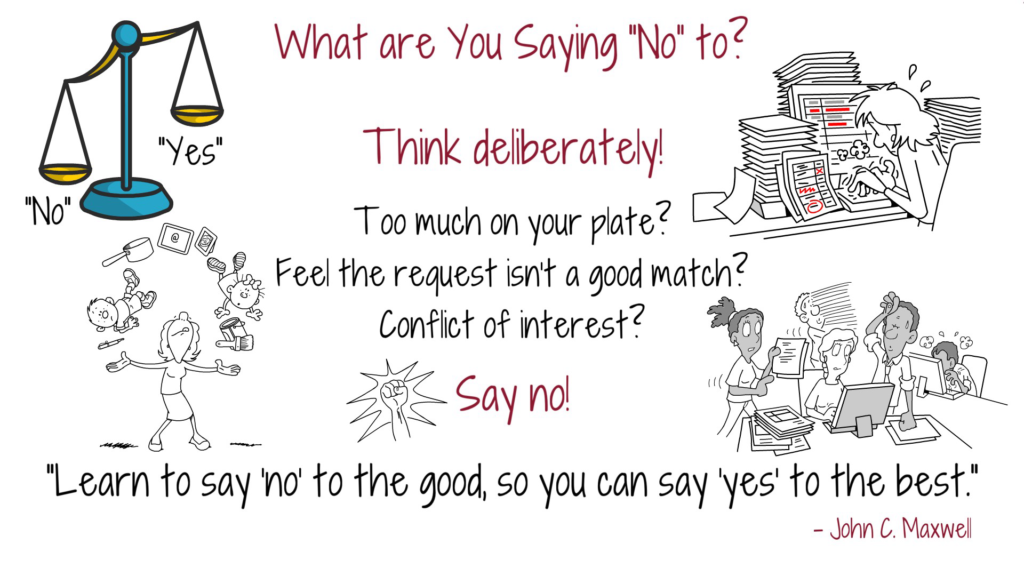
Say no to distractions and interruptions. Don’t take phone calls that will pull you away from the work you’re trying to do. Skip the dramas that try to take you away from what needs to be done. Say no to substances that dull your senses and influence your decisions and behaviors in a negative way.
Author John C. Maxwell wrote,
“Learn to say ‘no’ to the good, so you can say ‘yes’ to the best.”
Think deliberately about what is in your best interest and has the most potential.
Say no to anything that is not going to help you get where you want to be. No is a simple word, but it can be powerful.
How to Say No
So how do you say no? It may be a simple word, but it’s not always so simple to apply it. But saying no can actually make your “yes’s” more meaningful. When you do say yes to something, the people you are working with will know you are fully engaged and committed to the project.
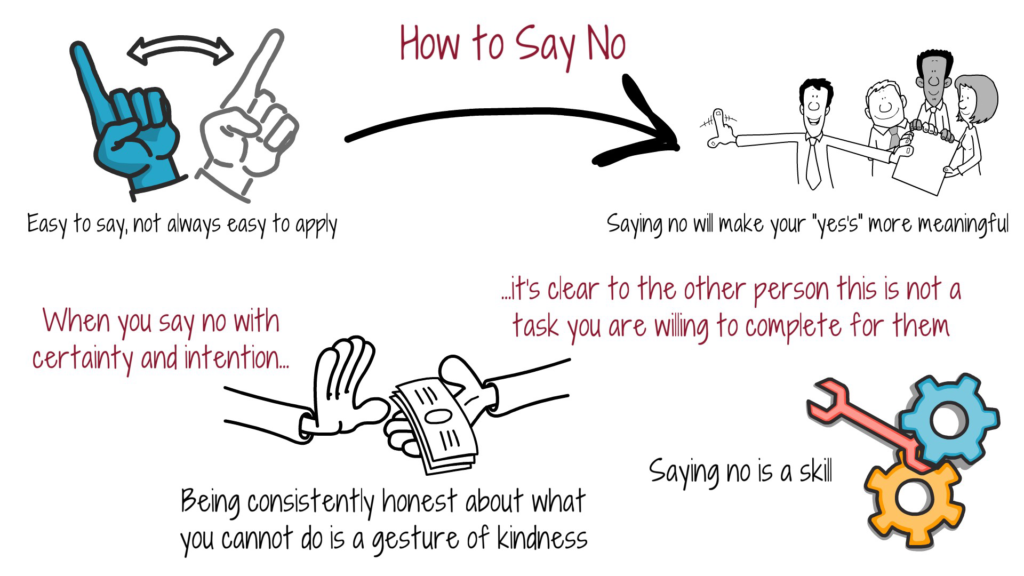
When you say no with certainty and intention, it becomes clear to the other person that this is not a project or task that you are willing or able to complete for them. Once they accept your decision, they can look for other options. Being consistently honest about what you cannot or will not do is a gesture of kindness that frees the other person to do something else.
Saying no can be a skill in itself. You don’t need to be hurtful or rude. But you do want to come across as confident, and let the other person know you have made up your mind. Say no without over explaining or apologizing, and be straight forward. A few examples might sound like:
- No, I can’t prioritize that at this time.
- No, I won’t be able to attend that event.
- No, that wouldn’t fit in with my current schedule.
- No, but I might know of someone else who can help you. I’ll send you their contact information.
- Or just a simple, “No, thank you.”
If the other person persists or needs more explanation for your refusal, you can simply say that you are limiting your commitments at this time and you’ve made your decision. Declining a proposal by letter or email might be a bit more lengthy if it’s a business prospect. But still use the guidelines of courtesy, and firmly state your position on the subject. People generally appreciate an honest and timely response.
Motivational Author, Brian Tracy said,
“The only way to get things done is by setting clear goals, and making sure that every action you take aligns with those goals.”
Personal Well-Being and Empowerment
Saying no can make you feel more free, less pressured, and more in control of your life. Don’t let other people set your schedule or make your decisions. Author Gary Lew wrote,
“This is your world. Shape it or someone else will.”
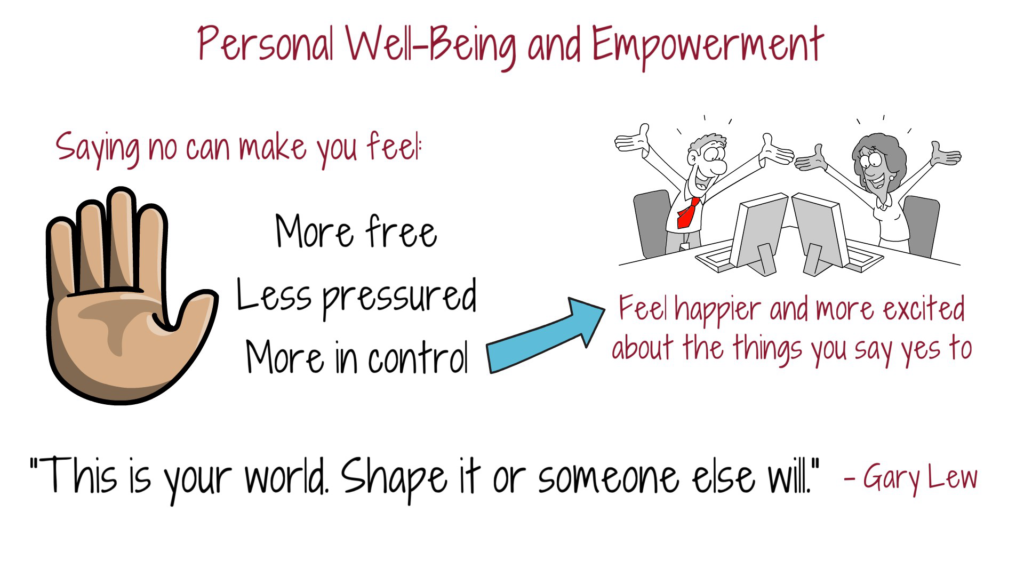
When you feel in control of your life, you will probably feel happier, and more excited about the things you say yes to. Your health and personal well-being are important. So say no to things that don’t align with your vision of success. Weed out what leaves you feeling drained and unfulfilled. And invest in what brings you growth.
Really successful people say no to almost everything because they know the value of their time, energy and money. They only put their best efforts toward something they know is in line with the bigger picture. Saying no to things that won’t accomplish that, allows them to stay focused on the things that will bring them closer to their goals. Anything else is an unnecessary distraction. Being fully engaged in those things that matter, will make all the difference.
American Business Billionaire Wayne Huizenga, stated,
“Some people dream of success, while other people get up every morning and make it happen.”
By saying yes to those things that make you want to get up and make things happen, and no to those that don’t, you’re making choices that could lead you to become a “Really Successful Person.”
